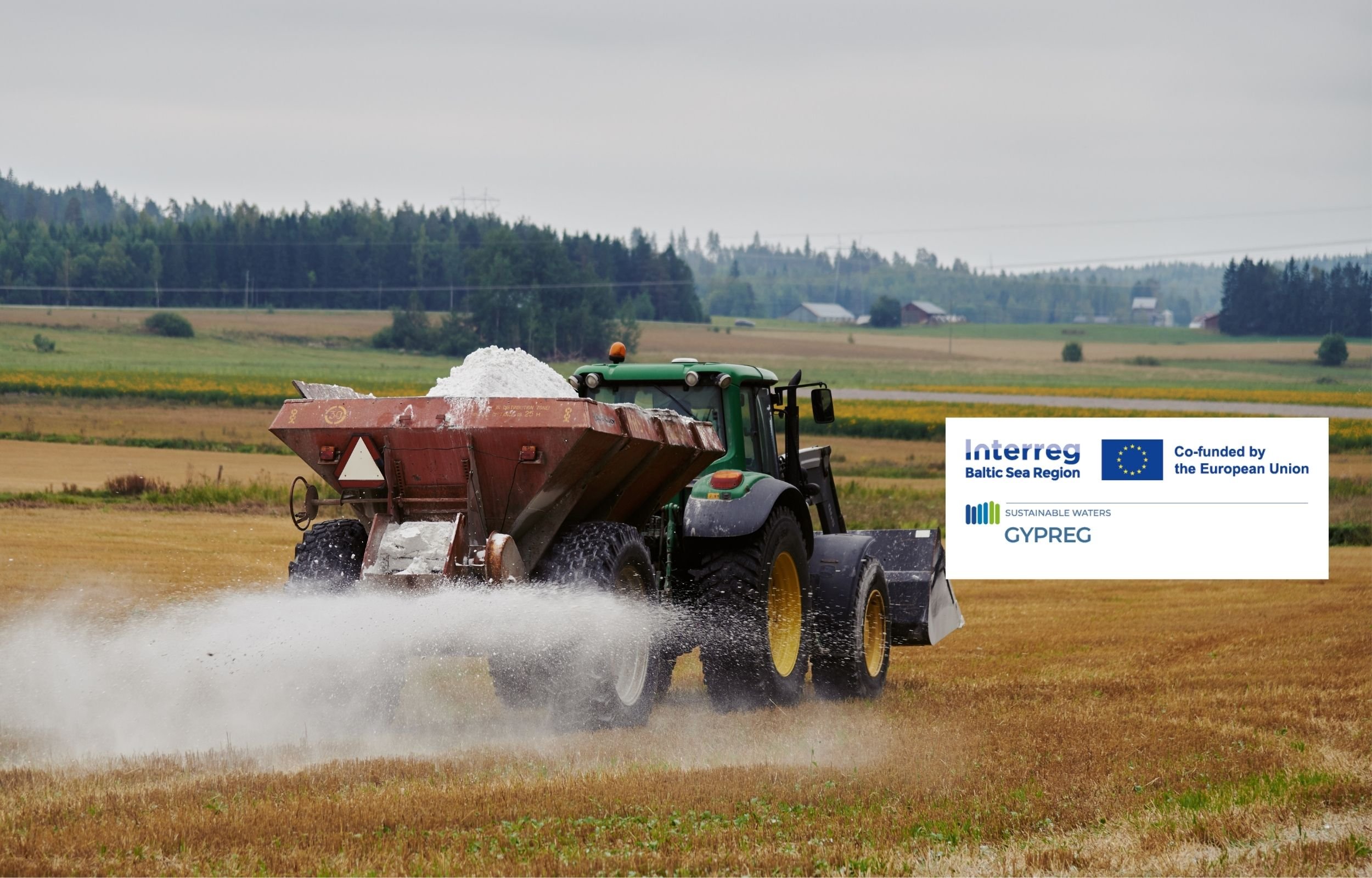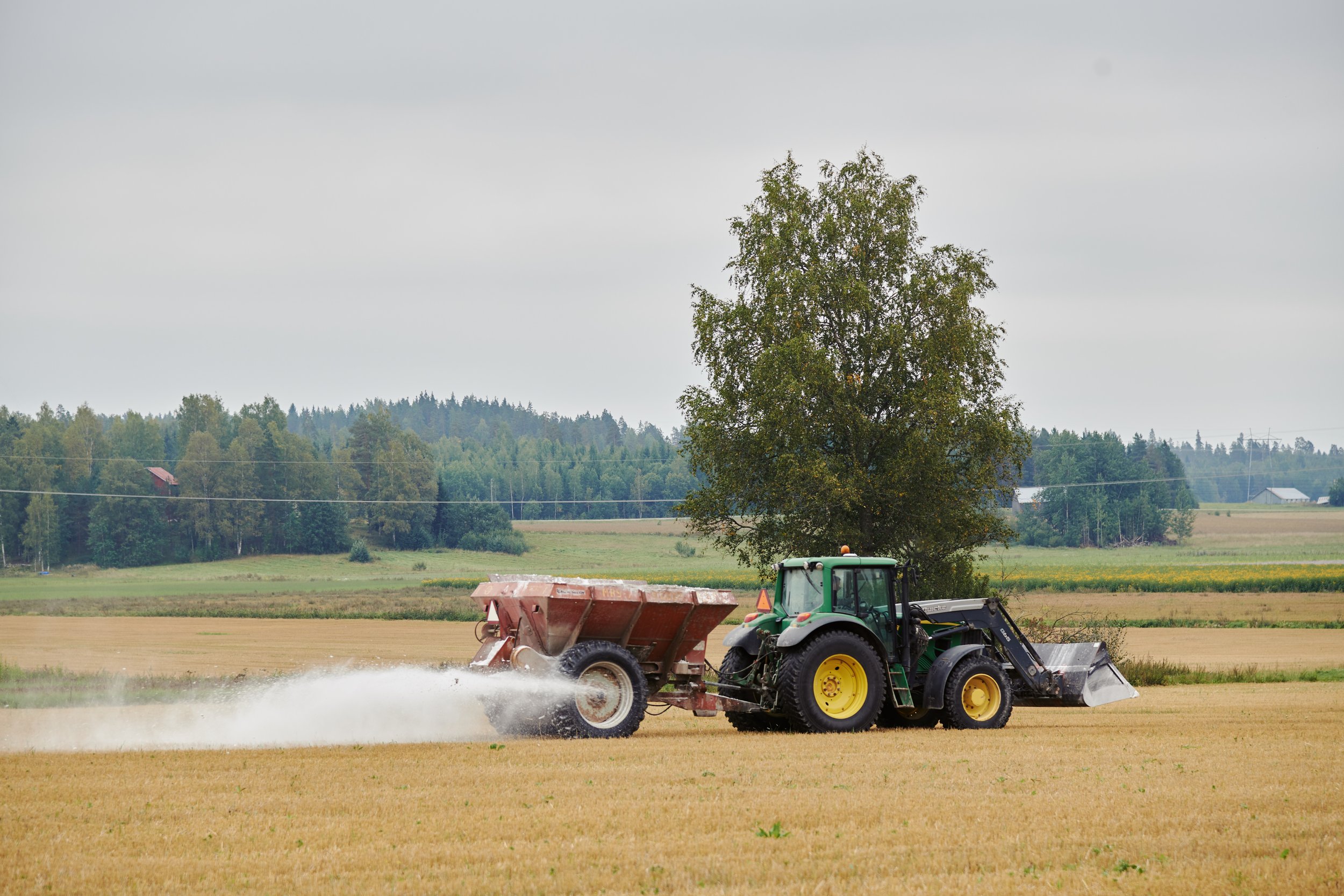
GYPREG
Reducing nutrient leakage from farmland with gypsum
The Baltic Sea faces severe environmental issues due to nutrient leakage, primarily phosphorus, from agricultural lands. This nutrient runoff accelerates eutrophication, causing excessive algal blooms that deplete oxygen in the water, threatening marine life. The GYPREG project seeks to tackle this problem by applying gypsum to farmlands, a method shown to reduce phosphorus runoff and soil erosion.
Gypsum has the potential to significantly reduce phosphorus runoff from agricultural land, helping EU member states comply with the EU Water Framework Directive, Marine Strategy Directive, and the HELCOM Baltic Sea Action Plan. Despite its promise, gypsum use is not yet widely known or locally implemented, limiting implementation. To address this, the project will collaborate with authorities, NGOs, farmers, and associations to jointly develop and adapt the method to local conditions and execute pilot activities.
Project Activities
Share insights from Finnish trials with Swedish stakeholders.
Use GIS analysis to pinpoint the most suitable areas for gypsum application on farmland.
Conduct lab tests to evaluate the impact of gypsum and gypsum/lime mixtures on Swedish soils.
Carry out field trials using gypsum.
Hold demonstrations for Swedish stakeholders.
Spread knowledge to local stakeholders in Sweden and Poland to encourage increased use of gypsum on agricultural land.
Status
Active
Project Goals
The primary goal is to minimise nutrient runoff into the Baltic Sea by increasing the use of gypsum treatment. This helps improve water quality and supports the environmental objectives set by the EU and HELCOM.
Expected Results
The project expects to see a significant reduction in phosphorus levels entering the Baltic Sea, leading to better water quality and reduced eutrophication. The effectiveness of gypsum treatment will be demonstrated through various pilot projects and studies.
Project Partners
The partners in the project are Finnish Environment Institute, Latvian Institute of Aquatic Ecology, Lithuanian Research Centre for Agriculture and Forestry, Swedish University of Agricultural Sciences, Institute of Technology and Life Sciences, Poland, John Nurminen Foundation
Funding
The project (2023-2026) is funded by the EU’s INTERREG Baltic Sea Region programme, which finances cross-border cooperation projects to improve the state of coastal and marine environment.
Sustainable Development Goals
The project adresses SDG 6 (Clean water and sanitation), SDG 12 (responsible consumption and production), SDG 14 (life below water) and SDG 15 (life on land)
For more information about the GYPREG project, please contact our Business Managers:
Sweden
Elsa Bertils
elsa(at)raceforthebaltic.com
Poland
Aleksandra Najda
aleksandra(at)raceforthebaltic.com
Related news
















